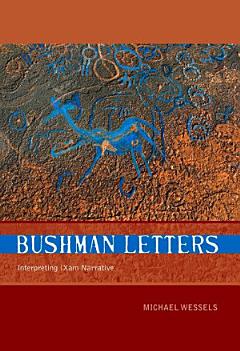The Bleek and Lloyd Collection consists of the notebooks in which William Bleek and Lucy Lloyd transcribed and translated the narratives, cultural information and personal histories told to them in the 1870s by a number of /Xam informants. It represents a rare and rich record of an indigenous language and culture that no longer exists, and has exerted a fascination for anthropologists and poets alike. Yet how does one begin reading texts that are at once so compromised and so unique? Bushman Letters is an important book for it examines not only the /Xam archive, but also the critical tradition that has grown up around it and the hermeneutic principles that inform that tradition. Wessels critiques these principles and offers alternative modes of reading. He shows the problems with the approaches employed by previous critics and, in the course of his own detailed and poetic readings of a number of narratives, suggests what their interpretations have left out. The book must be described as metacritical: it is criticism about the critical tradition that has grown up around the /Xam archive and in the fields of folklore and mythology more widely. Bushman Letters addresses a curiously neglected area in the burgeoning literature on the Bleek and Lloyd Collection: the texts themselves. In doing so, the book makes a substantial contribution to the study of oral narratives in general and to the theoretical discourse that informs such studies.

